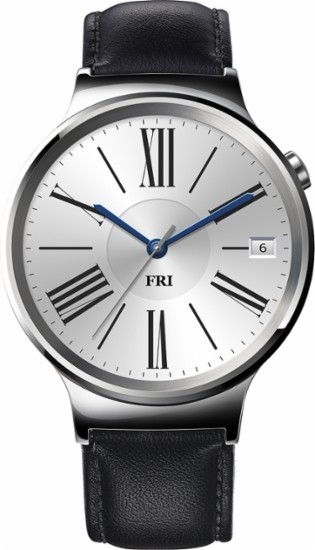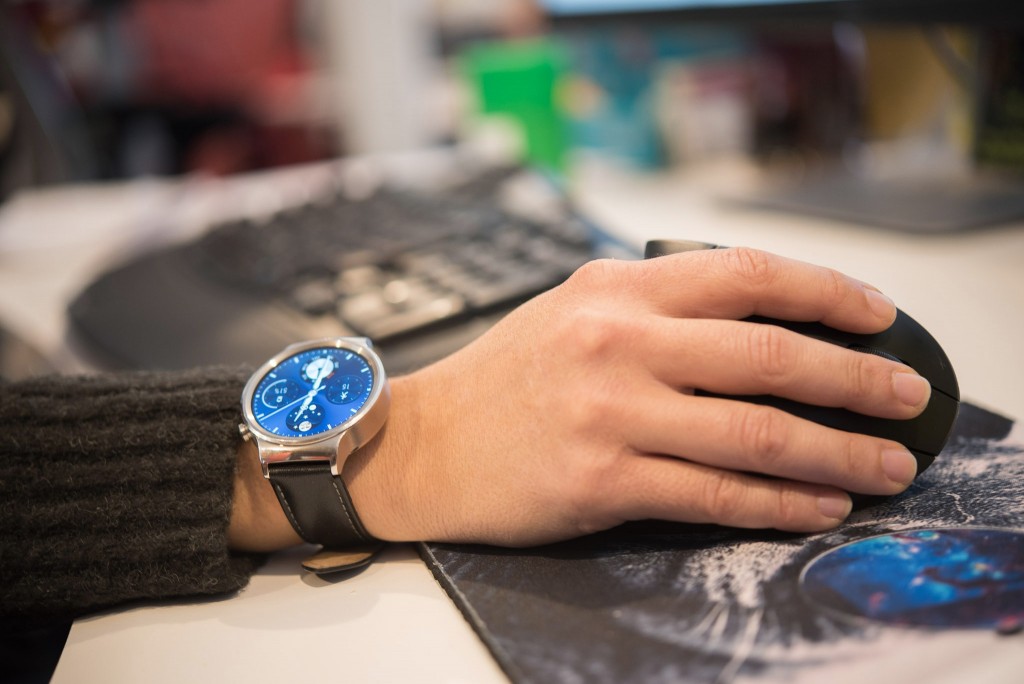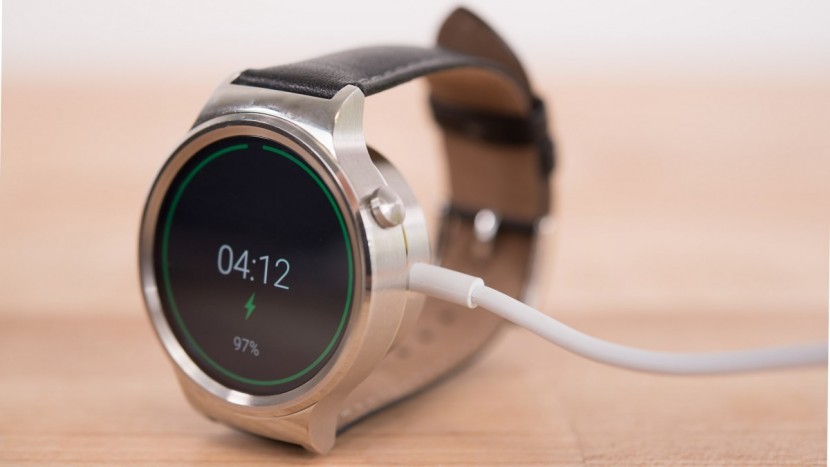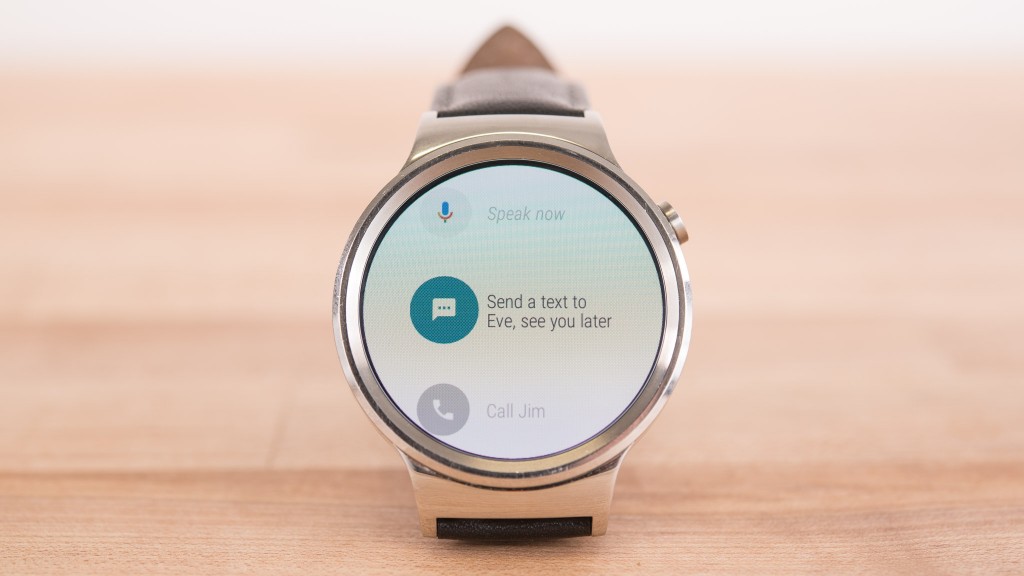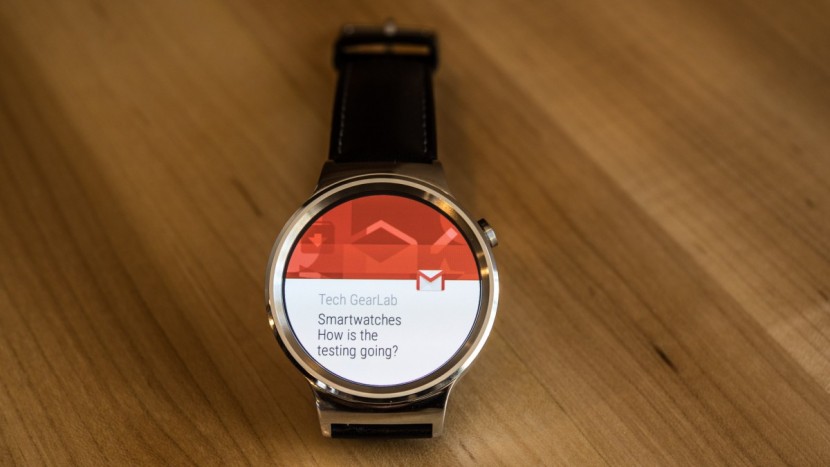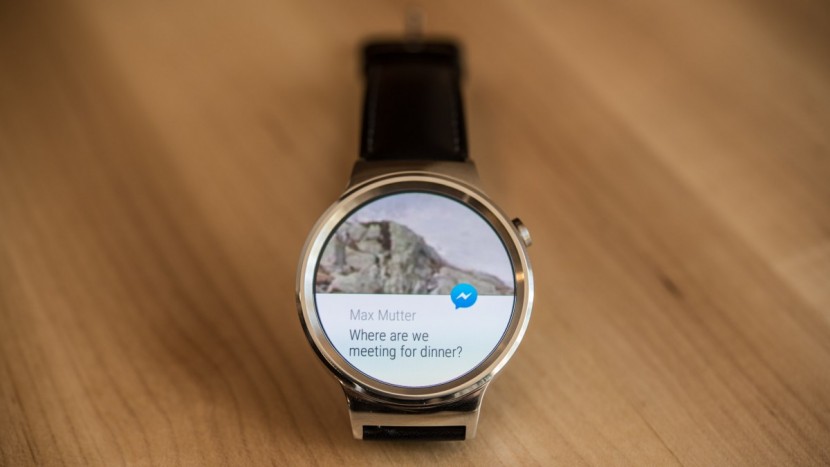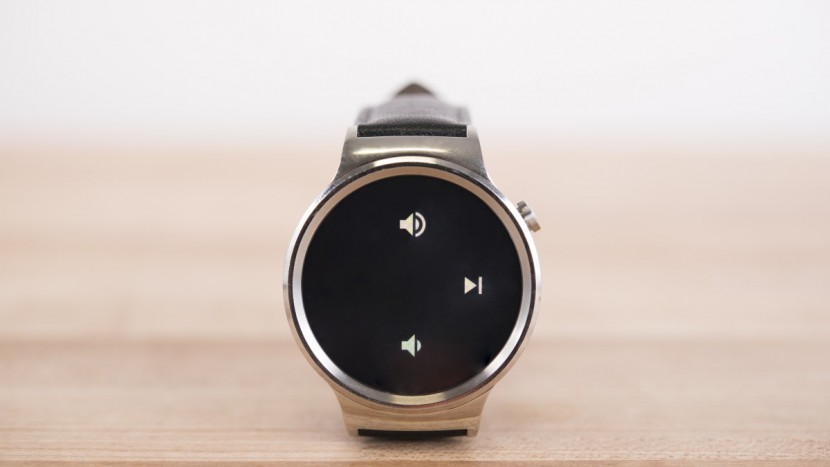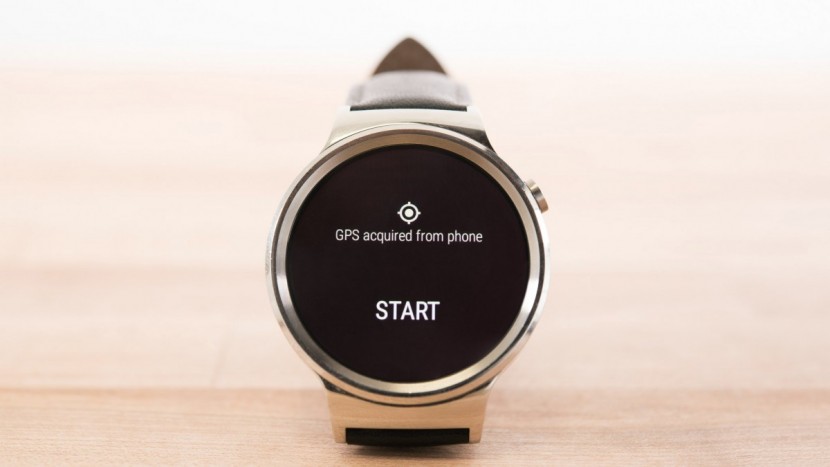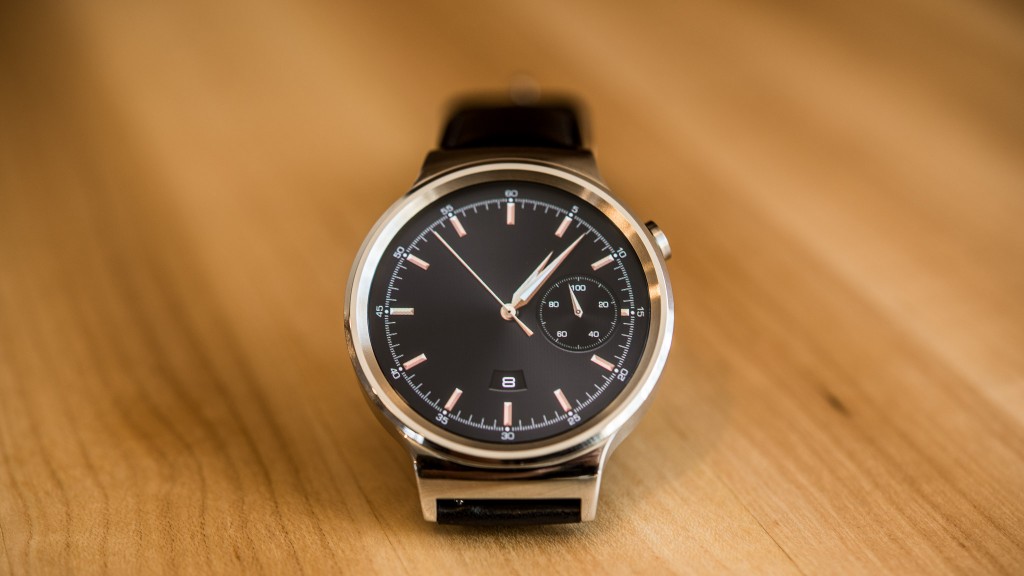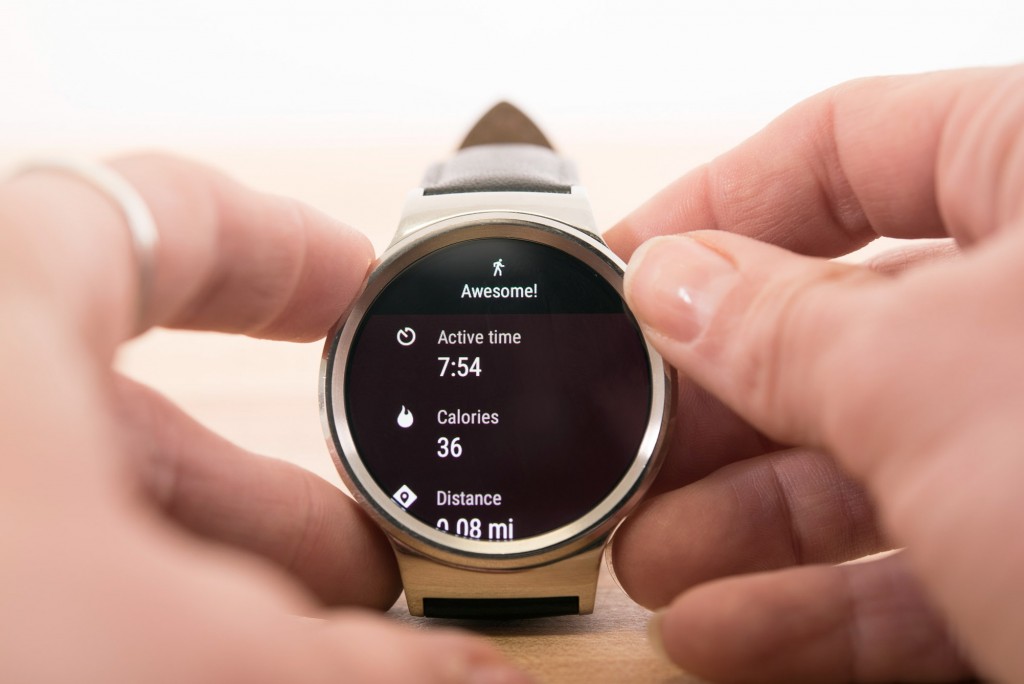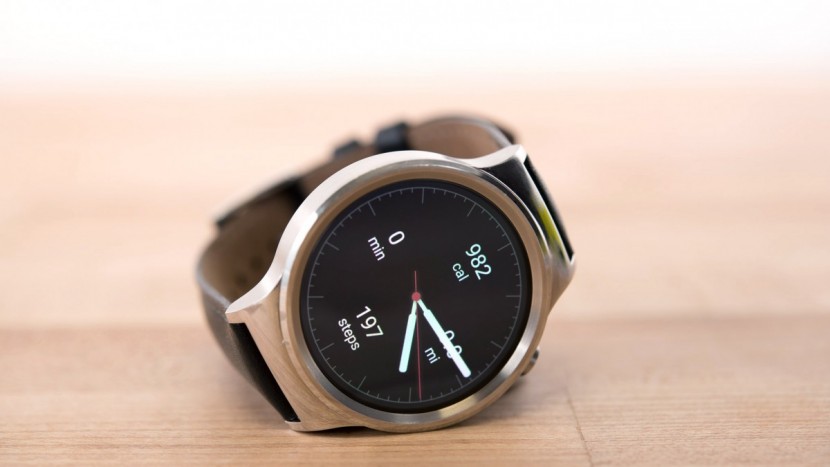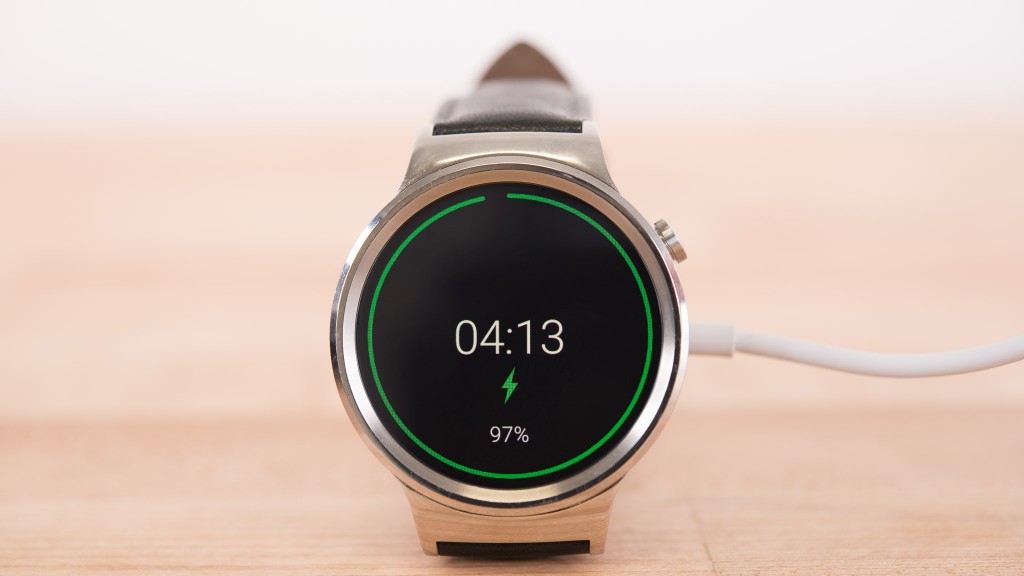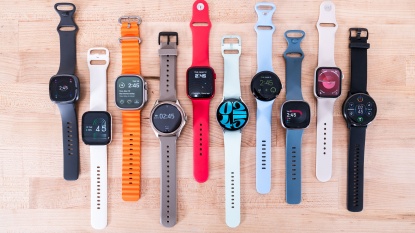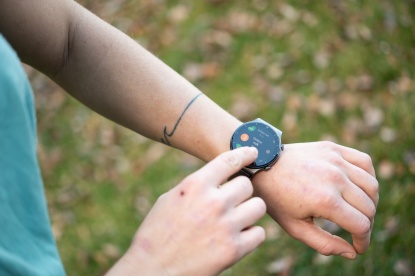Huawei Watch Review
Our Verdict
Our Analysis and Test Results
One of the more aesthetically minded Android Wear smartwatches, the Huawei Watch does its best at incorporating reasonable performance into a sleek design. While this is by no means a poor choice, it fails to stand out in a particular area of testing and is a little pricey compared to other similarly scoring models, making it a poor choice in terms of value.
We divided our testing methodology into five different weighted metrics — Ease of Use, Display, Battery Life, Smart Functions, and Fitness Impact — giving each model a subscore for each one. Each metric included a handful of tests, with the following text sections detailing exactly how the Huawei Watch performed.
Ease of Use
By far the most important metric in our test, Ease of Use is responsible for close to a third of the final score, contributing 30%. We compared the ease of taking watch screenshots, the charging setup, water resistance, wristband swappability, the responsiveness of the touchscreen and the interface methods to determine each model's score. The Huawei Watch did an acceptable job, meriting a 5 out of 10 for its average performance.
This timepiece run the Android Wear operating system, meaning that it is a relatively frustrating process to capture a screenshot of the content on the watch's screen. The Huawei had a reasonable level of water resistance, complying with the IP67 standard. This means that it can handle washing your hands or being out in the rain without issue, but isn't suitable for swimming, diving, or prolonged submersion.
The charging cable wasn't the most reliable, but remained connected most of the time. The Huawei Watch uses magnets to aid in aligning the connector pins, but sometimes it did take a second try or some slight adjusting to achieve a solid connection.
This model lacks a crown scroll, leaving the side buttons and the touchscreen as the only interface methods available. This model has a nicely responsive touchscreen — better than the Asus ZenWatch 3 — without being overly finicky and twitchy like the Nixon Mission. This model was a little less responsive in terms of waking from its sleep mode, taking about a second for the display to light up when you raised your wrist from your side. This model does allow you to swap wristbands — about the same level of difficulty as the Samsung Gear S3 or Motorola Moto 360.
Smart Functions
Right behind Ease of Use, our Smart Functions metric made up 20% of the total score, with the Huawei Watch starting a trend with another score of 5 out of 10. We tested the compatibility with a sample set of popular apps, the ability to make or receive phone calls, control your tunes, or pay for things, and whether or not there was a built-in GPS module to determine scores.
Out of our sample group, the Huawei Watch was compatible with Strava, Spotify, IFTTT, and Shazam, but failed to work with Uber, Facebook Messenger, Evernote, Whatsapp, Instagram, or Twitter.
This model of smartwatch has not yet upgraded to the Android Wear 2.0 operating system, with the update planned for later this year, which should increase the app compatibility. You can make or receive calls on this model, with the sound quality being slightly above average.
This model has the identical music controls as the other Android Wear watches, with play/pause, skip, replay and thumbs up/thumbs down showing up automatically when Pandora or another music app began playing music.
However, this watch lacks a built-in GPS Module for standalone distance tracking or navigation, or NFC technology, making the use of Android Pay impossible.
Display
On par with Smart Functions, Display also took credit for 20% of the final score. The Huawei boosted its score a little bit for its solid score in this metric, earning a 6 out of 10 for its above average display. We compared the quality of the screen, its readability, and the different settings available to determine the scores.
The Huawei Watch boasts a 1.4" 400x400 AMOLED screen — one of the nicest of the Android Wear watches. This fully-circular, 286 ppi screen was very well received by our rating panel, only being beaten by the Samsung Gear S3 and the Apple Watch Series 2. This model lost a few points in our visibility test, as it was reasonably difficult to see the watch screen in bright outdoor condition, considerably harder than the Fossil Q Marshall, Gear S3, or Apple Watch. This model also lacks an automatic brightness feature but does have the option to set the screen to be always on.
Fitness Impact
These products all have some fitness tracking capabilities, averting the need to wear a dedicated fitness tracker in addition to your smartwatch. This metric made up 20% of the total score, consisting of comparing the step counter and heart rate monitor on each model, as well as the ability to track flights of stairs climbed and the workout tracking capabilities. The Huawei once again did reasonably well, earning a 6 out of 10 for its decent performance.
This was actually one of the more accurate step counters of the bunch, only exhibiting a 0.94% discrepancy from the true count. To test this, we took the watch on a mile-long walk and counted the exact number of steps with a mechanical tally counter, then compared the results. The Huawei overcounted by 20 steps, showing 2355 instead of the correct 2335.
We performed a similar test to check the accuracy of the heart rate sensor, comparing the reading on the watch to a chest strap monitor while at rest. The Huawei was alright — on par with the rest of the Android Wear watches — averaging within 5 bpm of the true value. However, the Huawei doesn't update continuously, requiring you to manually hit the button again to have it refresh its value.
This model can't track flights of stairs climbed but can monitor an average range of workouts using the Google Fit app. This app allows you to select between walking, running, or biking. It also has a push-up, sit-up, or squat challenge that you can select. The watch will track duration, distance, average pace, steps, and estimate calories burned for each activity.
Battery Life
The final aspect of our testing process — Battery Life — made up the last 15% of the final score. We compared how long each timepiece lasted with normal use, sending a prescribed schedule of texts, call, and notifications and waking up each model to simulate this, as well as timing how long it took to charge to halfway and to completion. The Huawei Watch once again delivered a reasonable performance, earning a 6 out of 10.
This watch lasted for 33.2 hours of normal use in our test, right on par with the other Android Wear watches. It did a little better at charging quickly, only taking 32 minutes to charge to 50% — short enough that you can reasonably top it off before going out for the evening. Slowing down a little bit, it took 90 minutes to completely charge, but this was still better than the 105 minutes of the LG Watch Sport or the 123 minutes of the Moto 360.
Value
This average model with an above-average retail price makes it a poor value option, causing us to dissuade you from purchasing if you are looking for the most bang for the buck.
Conclusion
The sleek and stylish Huawei Watch scored reasonably well and has the aesthetics to match, but doesn't take home major recognition in any of our metrics and failed to distinguish itself from the pack. It's also a tad pricey.


